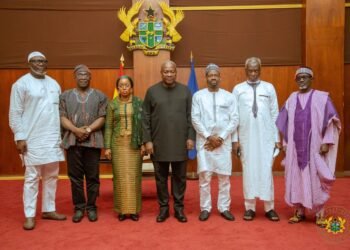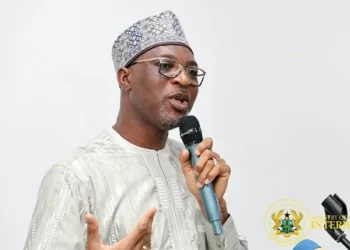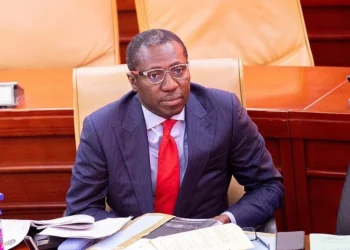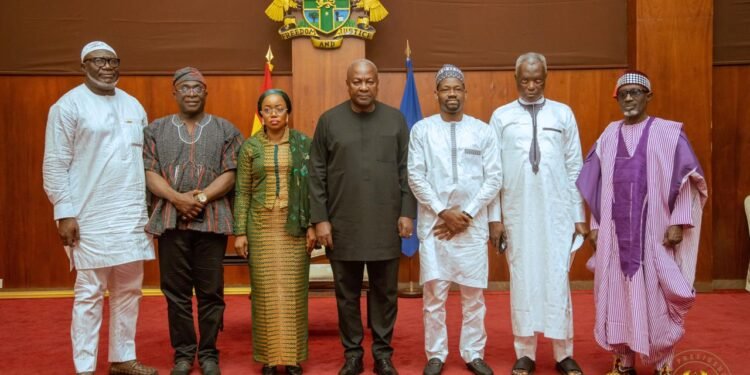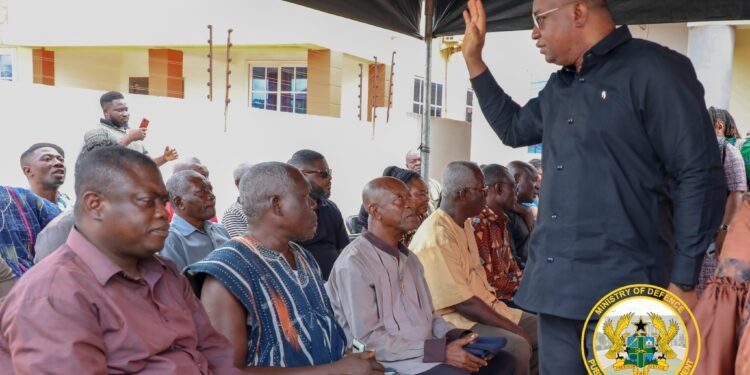Ghana’s Constitution, as stipulated in Article 68 (5), introduces a distinct provision exempting the president from taxes, encompassing “salary, allowances, facilities, pensions, and gratuity” mentioned in clauses (3) and (4).
This exemption has persistently sparked debates throughout the Fourth Republic, emerging prominently as the nation embarks on another election cycle.
Dr. Benjamin Otchere-Ankrah, a Governance Lecturer at Central University, has been a prominent critic of this exemption, advocating for a thorough amendment of the law. His argument revolves around the incongruity of obliging hardworking market women, who earn their livelihood through daily toil, to contribute through taxes while exempting the President from this financial responsibility.
Although the President enjoys immunity from taxation on salaries and allowances, Dr. Otchere-Ankrah underscores the significance of constitutional provisions that mandate tax payments should the President own a business. He vehemently opposes the exemption.

“The President enjoys the most of the things that everyone enjoys in this country… I disagree that he shouldn’t be paying taxes. I disagree!”
Dr. Benjamin Otchere-Ankrah
More recently, the Constitution Review Consultative Committee member, John Azuah made known the position of the committee on the issue.
“Then when it comes to paying of tax, we are proposing that as the day goes by leadership by example, our president should pay taxes.”
John Azuah
Democratic governance hinges on transparency and accountability, essential elements for cultivating trust between leadership and citizens. Central to this trust is the equitable distribution of the tax burden, irrespective of social or political standing. In the Ghanaian context, the call for the President to transparently pay taxes aligns with principles of fairness and reinforces the government’s commitment to fiscal responsibility.
At the core of the issue is the recognition that taxes play an indispensable role in a nation’s growth, funding vital public services, infrastructure enhancements, and socially impactful programs. The sustainability of Ghana’s economic momentum necessitates universal participation, making a just tax system paramount. Exempting the President from this obligation risks undermining the essence of equitable contribution, sending a disconcerting message to the populace about the fairness of the system.

Adhering to international norms is imperative for Ghana’s global standing. In numerous nations, leaders are obligated to pay taxes like any other citizen, reflecting not only legal compliance but also ethical governance. Aligning with this standard would not only uphold the rule of law but also enhance Ghana’s global reputation, portraying a commitment to responsible fiscal management on the international stage.
The act of paying taxes transcends mere legal obligation; it carries significant symbolic weight. The President, as a national figurehead, sets a standard for the populace. Fulfilling tax obligations becomes a powerful symbol of civic duty and responsibility, fostering a sense of unity and shared sacrifice. Leadership by example in this domain instills confidence and trust in the government, solidifying the social contract between leaders and citizens.
In the spirit of the tenets of good governance, the President’s tax contribution is a thread weaving a narrative of a nation confidently advancing toward a brighter future.
Reassessing the tax exemption for Ghana’s President is not merely a legal or financial matter; it is a symbolic gesture that can strengthen the nation’s fabric, emphasizing the principles of fairness, accountability, and shared responsibility.
As calls for a comprehensive review of the 1992 Constitution intensify, the tax exemption in Article 68 (5) must be looked at too.
It is not only warranted but also essential for upholding the principles of democratic governance and ensuring that no individual, regardless of their position, is exempt from contributing to the nation’s growth and development.
READ ALSO: DMB’s Running Mate: A Case For Dr. Yaw Osei Adutwum




